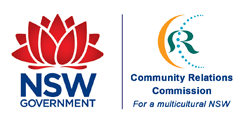Who’s involved
Migration Heritage Centre, NSW Heritage Office, NSW Local Government and Shires Association and rural and regional communities in NSW.
When and where
Project location: Albury, Broken Hill and Orange (rural and regional NSW)
Project status: Completed project
Date of completion: April 2002
Project description
Migrant communities from a range of cultural backgrounds have contributed enormously to the development of rural and regional communities across the State. However there is often little recognition of these contributions in museums and in the official histories of these areas. Sites of historical and cultural significance for these communities are also rarely known.
Heritage means those items, practices, places and sites that are special to communities. The Regional Migration Heritage Identification project was initiated to ensure that the stories, experiences, achievements and places of interest for migrant communities in rural and regional NSW are recognised and celebrated as part of the common history and rich heritage of the State.
What has the project achieved?
Stage One of the project involved workshops and consultation with communities to raise awareness about heritage. The workshops were also used to develop skills so that heritage items and places of importance could be identified and assessed. The communities involved in these workshops identified a range of items of significance including a Croatian club, a Slovenian club, a Laotian temple, and a 1930s Dutch plane. The Stage One report, ‘Rich Rewards: Cultural Diversity and Heritage Practice’ is available on the MHC website.
Stage Two continued the work with communities and identified items and sites for inclusion in local heritage studies and collections. Stage Two will also develop Guidelines for promoting culturally diverse heritage practices which will be an important resource for heritage practitioners, community organisations, agencies and those seeking to recognise the diversity of their communities. A brochure creating awareness about the availability of the Guidelines will also be produced and distributed. The Stage Two Report and Guidelines will be published on the MHC website by the end of 2001.
Project contact
John Petersen – Manager
Migration Heritage Centre
Phone 02 9217 0625
Fax 02 9217 0628
Email johnp@phm.gov.au
Address:
PO Box K346
HAYMARKET NSW 1238
AUSTRALIA
Website
www.migrationheritage.nsw.gov.au

